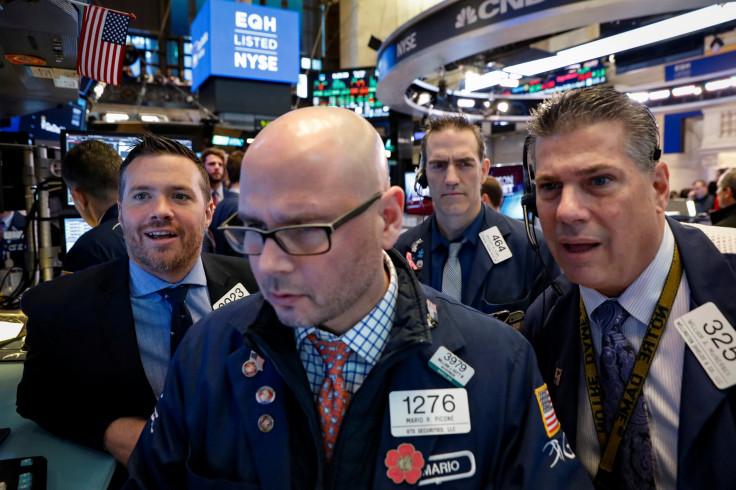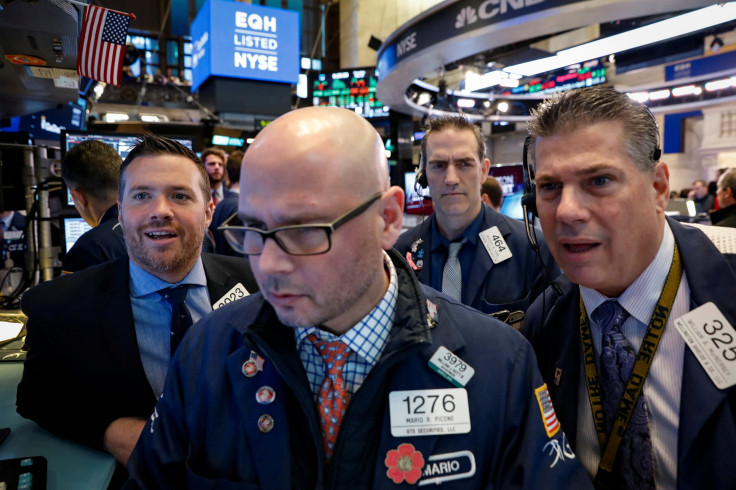Tax Cut Helping Turn US Small Caps Into Unlikely Source Of Safety

NEW YORK - The Republican-led corporate tax cut is helping turn the shares of smaller publicly traded companies in the United States into an unexpected source of stability as the broader stock market wobbles.
Typically, the shares of small and mid cap companies in the Russell 2000 index are more volatile than the large cap S&P 500 .SPX, in part due to their concentration on the U.S. economy and smaller financial cushions.
Yet since concerns about rising inflation and an escalating trade war stopped the broad U.S. stock market in its tracks after the S&P 500 hit record highs in January, the Russell 2000 has held on to more of its gains. It dropped 0.4 percent from its high of the year, compared with a 5.5 percent decline in the S&P 500.
“When you look at the remainder of 2018 and especially going into 2019, the forward expectations are that the small cap universe is going to see accelerating earnings growth, whereas the large caps in general are still going to be growing but they won’t see a benefit as magnified,” said Martin Jarzebowski, a portfolio manager at the Federated Clover Small Cap Value fund ( VSFAX.O ).
Fund managers and analysts say that small companies are benefiting in part from December’s tax cut, which slashed the average tax rate among small cap companies from 35 percent to 21 percent.
Large cap companies, which earn a greater percentage of their revenues abroad, saw their effective tax rates fall from roughly 27.5 percent to 22.5 percent, according to estimates from Credit Suisse.
So far, companies in the Russell 2000 have paid $9.2 billion less in taxes this quarter compared with the last quarter of 2017, before the tax bill passed, according to estimates from Sandy Villere, a fund manager at New Orleans-based Villere Funds.
Jarzebowski said he has been focusing more of his portfolio on small cap financial companies seeing the greatest benefit from lower taxes and low unemployment, such as First Midwest Bancorp Inc ( FMBI.O ) and Chemical Financial Corp ( CHFC.O ), both of which are up approximately 3 percent for the year to date.
Small companies are also improving their margins by an average of 0.5 percent as they spend less on buybacks and more on reinvesting, said Venu Krishna, a strategist at Barclays. That, in turn, should provide a cushion for small caps even if wider volatility continues, he said.
“You are going to see more respectable earnings throughout the year, even after the benefits of the tax cut are factored away,” he said.
The volatility has shrunk trailing price-to-earnings valuations by 6 percent since the Russell 2000 hit a record high in January, Krishna added, leaving small caps both cheaper and less risky at a time when companies are growing their pre-tax earnings by an average of 14 percent year-on-year.
Eric Marshall, a fund manager at Dallas-based Hodges Capital, is moving more of his portfolio into small cap retail companies that are trading at depressed multiples. The retail sector is expected to see a significant benefit from the tax cut because the majority of revenues are domestic.
“For the most part the tax cuts are already factored in by the market and if you see a company beat estimates by just a penny or two they’re not getting rewarded for that,” he said. “We’re looking for areas where there’s top-line growth and increased consumption in places you haven’t seen that for a while.”
Portfolio holding American Eagle Outfitters Inc ( AEO.N ), for instance, recently hit a five-year high, thanks in large part to the growth of its Aerie lingerie brand that is taking market share away from L Brands’ ( LB.N ) Victoria’s Secret.
“You had the market pretty much leaving retail for dead, and that’s one place where we are seeing a lot of value,” Marshall said.
Reuters
Reporting by David Randall, Editing by Rosalba O'Brien

© Copyright IBTimes 2025. All rights reserved.





















